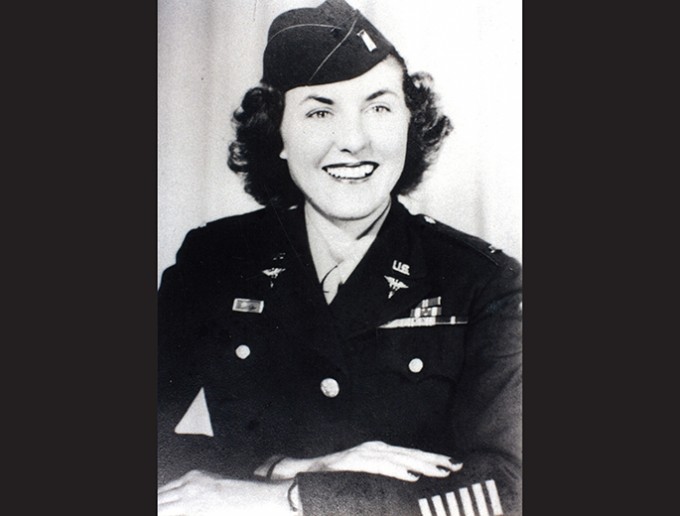Profiles In Nursing
Mildred Dalton Manning (1914-2013), WWII POW and the “Last Angel”
She joined the Army to see the world

Seventy-six years ago, American military nurses in the Philippines became prisoners of war. The last known survivor of these “Angels of Bataan and Corregidor” was former U.S. Army Nurse Corps Lt. Mildred Dalton Manning.
Join the Army, See the World
When 2nd Lt. Milly Dalton, RN, arrived at Clark Field in Manila in October 1941, it was a dream come true for a poor girl from rural Georgia. Born in a farmhouse, she’d grown up wearing homemade clothes and had to stay with her grandparents so she could attend high school.
During the Great Depression, she trained at the Grady Hospital School for Nurses in Atlanta and became the hospital’s head surgical nurse. In 1939, she gave up her post to join the Army Nurse Corps.
For Dalton, like other military recruits since time immemorial, travel was the primary attraction of military service. Short of winning the Irish Sweepstakes or marrying a millionaire, it was her only chance of seeing the world, which was also why she requested a transfer to Manila. “I asked for the Philippines because from there you could travel all over the Orient,” she later explained.
Care in the Jungle
Although most of Clark Field had heard about the Japanese bombing of Pearl Harbor by breakfast time on December 8, the base was sorely ill-prepared when it too fell under attack that afternoon. Dalton survived unscathed, but things soon went from bad to worse.
On Christmas Day, she and 19 other nurses traveled by ferry to the newly established Bataan General Hospital No. 2, near Cabcaban on the Bataan Peninsula. Despite its name, General Hospital No. 2 was nothing more than tables and cots spread across 3 acres of open jungle. It was primarily a convalescent facility, allowing Bataan’s marginally less crude General Hospital No. 1 to focus on the most critical combat casualties.



